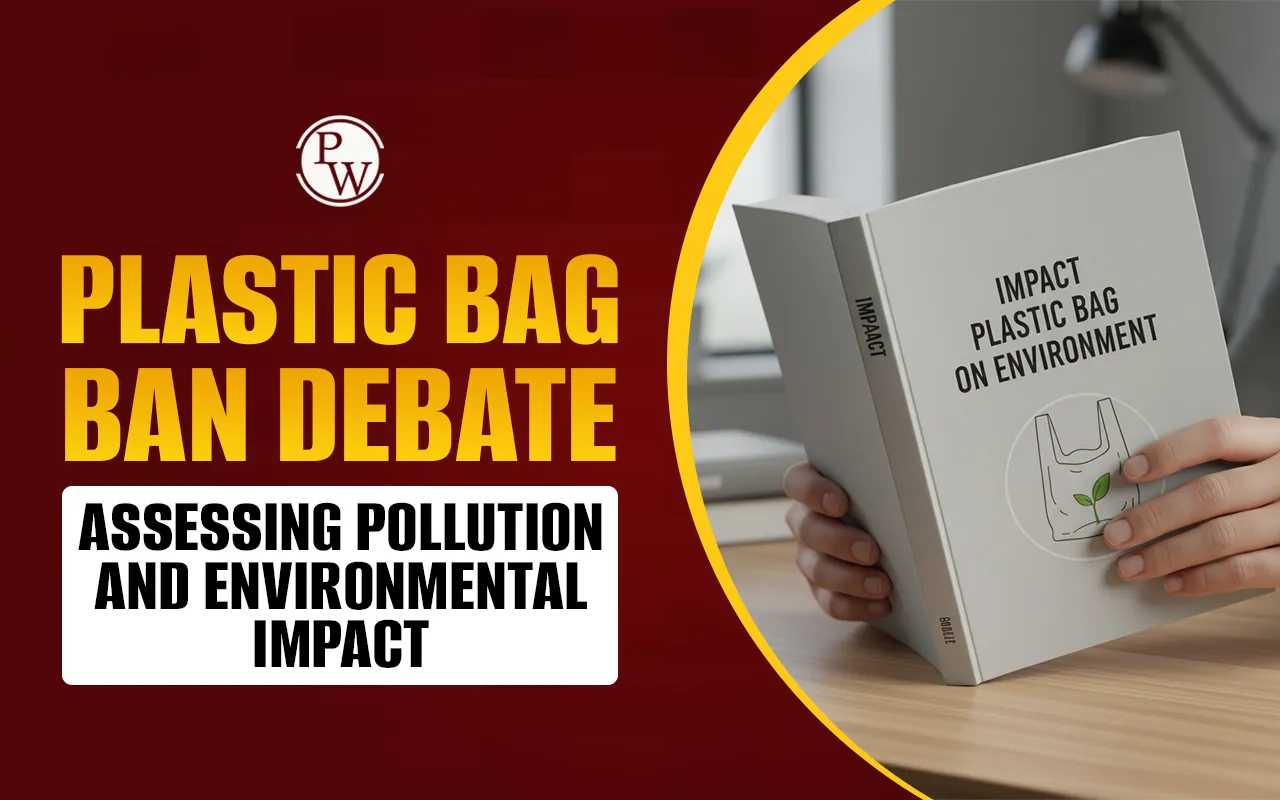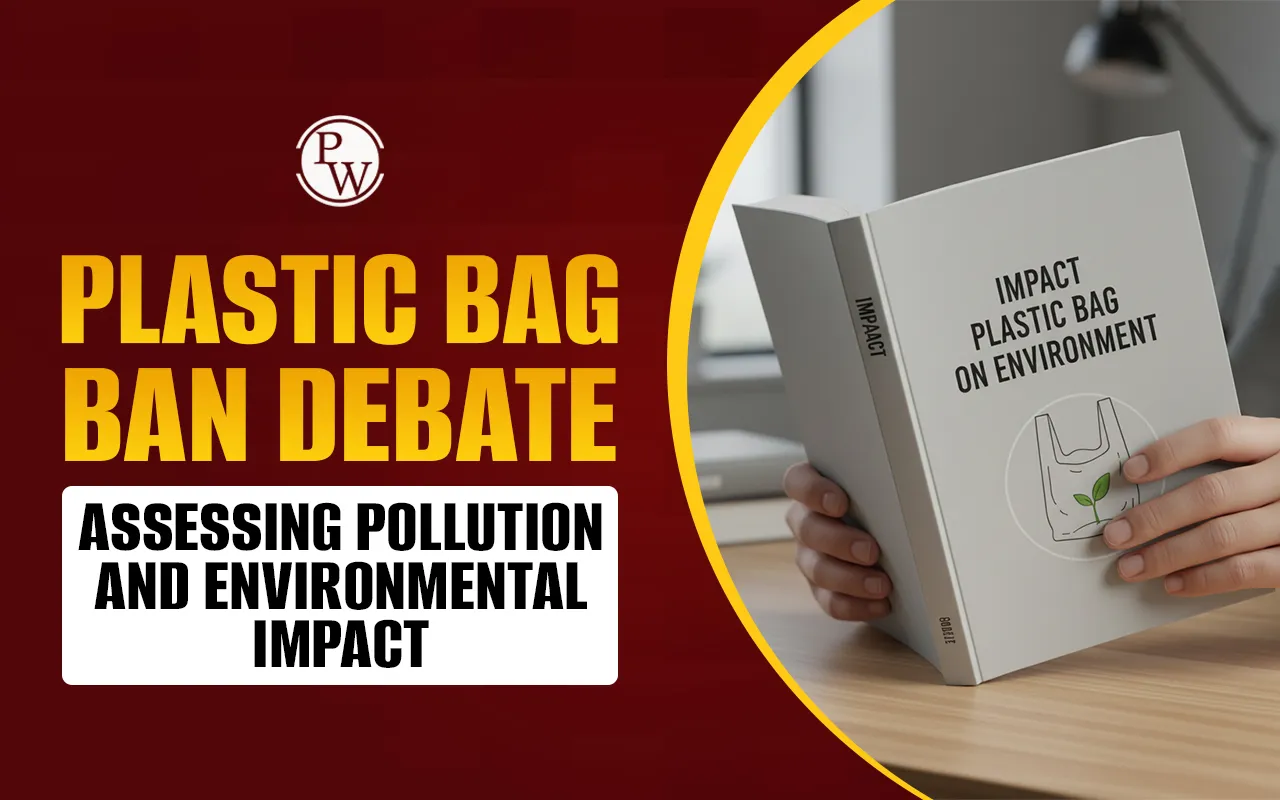

Some people think that plastic shopping bags should be banned because they contribute to land and sea pollution. To what extent do you agree or disagree?
The ever-increasing amounts of plastic shopping bags in landfills, oceans, and even in the bodies of wildlife have intensified the calls for a complete ban on plastic bags and their usage. This is a completely justified concern. Should societies continue to rely on these bags despite the rising plastic pollution they create, or is banning plastic bags the only responsible solution? This question captures the conflict between convenience and environmental duty. In my opinion, a complete ban is necessary, and although it may seem challenging at first, the long-term advantages far outweigh any short-term inconvenience.
Plastic bags can seem harmless at first because they are light and thin. However, their impact is massive. A plastic bag used for a few minutes during shopping can take centuries to break down. Even then, it does not disappear completely; it becomes microplastics that enter soil and water. These particles contribute heavily to land and sea pollution, harming ecosystems in a lot of adverse ways. Plastic bags collect quickly in landfills, forming mountains of waste that do not degrade. A large amount of such bags escapes into rivers and oceans, where they float for years. Sea turtles often eat them by mistake. Birds get trapped in them. Fish consume microplastics, which later enter human diets. This chain of damage is silent but severe.
Some people believe that banning plastic bags might make life harder, particularly in places where alternatives like cloth or paper bags are costlier or less common. This concern is understandable, but it ignores a much bigger truth: the economic cost of environmental destruction is far greater. Polluted rivers destroy fisheries. Dirty beaches harm tourism. Soil contaminated with microplastics reduces crop quality. These losses are far more damaging than the cost of shifting to sustainable options. Countries such as Rwanda, France, and Bangladesh have already introduced a plastic bag ban and have adapted quickly. Once people get used to reusable bags, they usually prefer them.
Another strong reason for banning plastic bags is the change it creates in public behaviour. When governments implement a plastic bag ban, people understand that the product is harmful and must be avoided. This sends a strong message that careless consumption is no longer acceptable. In places where bans are active, there is less litter, greater recycling, and stronger environmental awareness. Such policies do reduce waste and also teach responsibility.
Some argue that recycling is a better solution than a ban. However, this is not ideal. Plastic bags are too thin to be recycled easily. They clog recycling machines and often contaminate other materials. As a result, most bags placed in recycling bins never get recycled at all. They, however, end up in landfills or waterways, adding to plastic pollution. The only effective solution is prevention through a complete ban.
Another criticism is that banning plastic bags may harm workers in the plastic manufacturing sector. While this concern matters, it is important to recognise that economic shifts also create new jobs. The rise of cloth bag production, biodegradable material research, and green technology industries provides fresh opportunities. As societies move away from harmful materials, they move toward sustainable markets that benefit both workers and the environment.
There is also an ethical dimension to consider. A plastic bag used for a short time leaves behind a footprint that lasts centuries. Is it fair to leave such a burden for future generations? Harm that can be avoided should not be allowed to continue. Since better options exist, continuing the use of plastic bags is careless and unjustifiable.
Cities with a plastic bag ban often become cleaner. Fewer bags in drains means fewer floods during heavy rains. This prevents property damage and protects public health. The improvement in urban cleanliness benefits everyone and reduces the cost of maintaining public spaces.
Some people argue that individuals should have the freedom to choose whether they want to use plastic bags. While personal freedom is important, it cannot override collective safety. Pollution caused by one person affects everyone. When individual choices harm public spaces and shared natural resources, regulation becomes essential.
The global shift towards banning plastic bags has been growing for years. Communities adapt faster than expected. Retailers adjust, consumers change their habits, and governments introduce awareness campaigns to support the transition. A plastic bag ban does not need to be strict or sudden; it can be gradual and supported by education.
The question still remains, Should a product that damages oceans, harms animals, blocks drains, and endangers future generations be kept in use only because it is convenient? The answer is clear, banning plastic bags is an important step. Environmental pollution and climate issues are very serious and cannot be delayed. We must change things at our end before the changes and concerns become irreversible.
A plastic bag ban is not an environmental policy. Rather, it is more of a moral, social, and economic necessity. It indicates a move toward cleaner surroundings, better habits, and a safer future.
